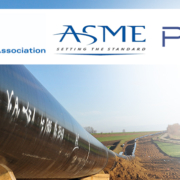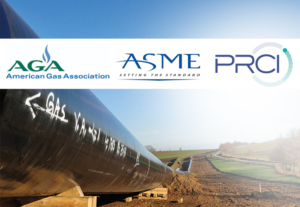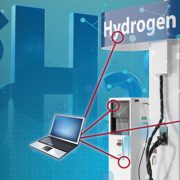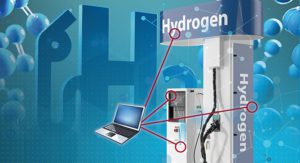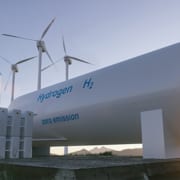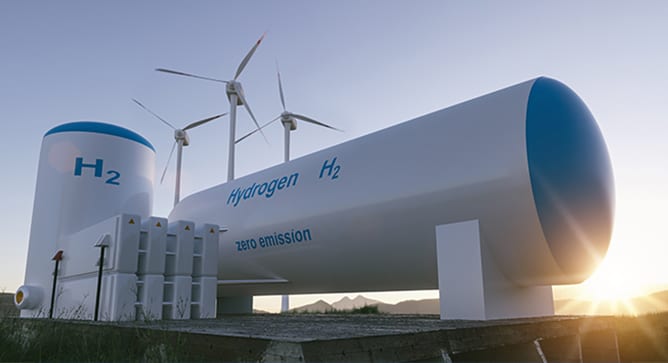Pipeline Integrity Activity and Plans for 2022
Authors: Scott Riccardella and Andy Jensen
2021 marked another successful year for the Structural Integrity (SI) Oil & Gas team with several exciting pipeline integrity projects, industry presentations, training events and research programs. Some of the key highlights include:
- Continued regulatory consulting support of new pipeline safety regulation (known as Mega-Rule 1 or RIN 1) for nearly all our gas transmission pipeline clients.
- Commencement of a systemwide pipeline integrity project to evaluate the impact to pipeline safety and reliability from blending hydrogen with natural gas (at various blend levels) for one of the largest U.S. gas pipeline companies.
- Several industry presentations and training seminars on fracture mechanics evaluation of crack and crack-like defects in support of Predicted Failure Pressure (PFP) Analysis and Engineering Critical Assessments (ECA).
- Completion of a PRCI study on state-of-the-art technology and a technology benchmark evaluation of X-Ray Computed Tomography to characterize Stress Corrosion Cracking (SCC) on full circumferential samples.
- Development of a Neural Network algorithm and application of Probabilistic Fracture Mechanics to provide insight on the risk of SCC for a large interstate natural gas pipeline operator.
- Development of an alternative sampling program for Material Verification when using In-Line Inspection tools including development of regulatory submittals.
2022 is also shaping up to be a similarly busy and exciting year. Below are some of the events, conferences and presentations SI has currently planned (most of which represent ongoing or recently completed projects):
- At the PRCI Research Exchange on March 8th in Orlando, FL, SI is presenting on two recent projects:
Insights in the Evaluation of Selective Seam Weld Corrosion
This paper will review a statistical analysis of ERW Fracture Toughness and specific challenges in evaluating Selective Seam Weld Corrosion (SSWC). It also reviews the results of an engineering critical assessment performed on a pipeline system in which several SSWC defects were identified. Fracture Toughness Testing and Finite Element Modeling were performed to develop insights that were used to support Predicted Failure Pressure analysis and subsequent prioritization and remediation activities.
Title: Evaluation of X-Ray Computed Tomography (XRCT) for Pipeline Reference Sample Characterization
This presentation will review the feasibility of utilizing XRCT for nondestructively characterizing full-circumference pipeline reference samples for subsequent qualification and performance improvement of inline inspection and in-the-ditch nondestructive evaluation technologies, procedures, and personnel. This presentation will cover the state-of-the-art in XRCT, reviewing theoretical and practical concepts, as well as empirical performance data, that were evaluated and analyzed to determine the feasibility of using XRCT for this application.
- SI has two papers that will be presented at the American Gas Association – Operations Conference the week of May 2nd in New Orleans, LA:
Alternative MV Sampling Program
SI will present technical justification in support of PHMSA notification with regards to the following:
- Alternative sampling for Material Verification Program (per §192.607).
- Expanded MV Sampling Program that will achieve a minimum 95% confidence level when material inconsistencies are identified.
A Framework for Evaluating Hydrogen Blending in Natural Gas Transmission Pipelines
Operators are establishing programs to blend hydrogen with natural gas. Structural Integrity (SI) is supporting a local distribution company to ensure safe and reliable blending and transportation in existing pipeline infrastructure. SI will present a reliability framework to identify pipelines that are best suited at different H2 blend levels.
- SI will present at the 2022 ASME – International Pipeline Conference on the following topic:
Probabilistic Analysis Applied to the Risk of SCC Failure
This paper will discuss a model developed and applied to evaluate the probability of Stress Corrosion Cracking (SCC) failure in a large gas pipeline system spanning approximately 5,600 miles. A machine learning algorithm (neural network) was applied to the system, which has experienced over 500 prior instances of SCC. Subject matter experts were interviewed to help identify key system factors that contributed to the prevalence of SCC and these factors were incorporated in the neural network algorithm. Key factors such as coating type, vintage, operating stress as a percentage of SMYS, distance to compressor station, and seam type were evaluated in the model for correlation with SCC occurrence. A Bayesian analysis was applied to ensure the model aligned with the prevalence of SCC. A Probabilistic Fracture Mechanics (PFM) model was then applied to relate the probability of SCC existing to the probability of rupture.

